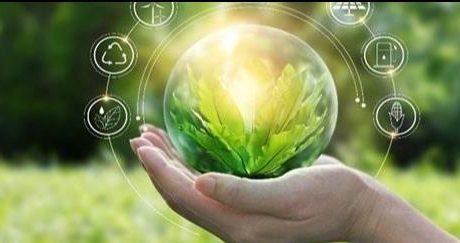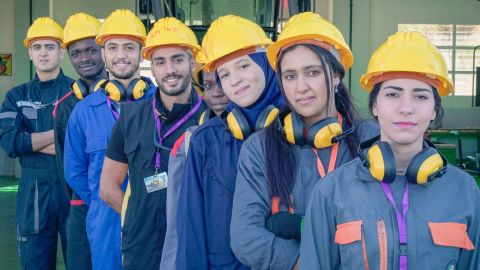
Egypt taking major strides towards green growth, SDGs..Recommended future actions
Advancing towards a green economy has received significant traction as part of Egypt’s commitment to ...

The Green General Skill index identified four green skills as vital for green occupations triggered by ongoing efforts by world countries to transit to a green economy.
The four skills are engineering and technical skills, science skills, operation management skills and monitoring skills.
Engineering and technical skills are needed for eco-buildings, renewable energy design and energy-saving research and development (R&D) projects. These are hard skills encompassing competences involved with the design, construction and assessment of technology usually mastered by engineers and technicians.
Science skills are especially in high demand in each stage of value chains and in the utility sector, which provides basic amenities such as water, sewage services and electricity.
Operation management skills are know-how related to change in organizational structure required to support green activities and an integrated view of the firm through life-cycle management, lean production and cooperation with external actors, including customers. Such skills are important, for example, for sales engineers, climate change analysts, sustainability specialists, chief sustainability officers and transportation planners.
Monitoring skills represent technical and legal aspects of business activities that are fundamentally a different way from the remit of engineering or of science. They refer to skills required to assess the observance of technical criteria and legal standards. Examples are environmental compliance inspectors, nuclear monitoring technicians, emergency management directors and legal assistants.
In addition to these skills, a range of soft skills are also considered to be increasingly important, not only for green skills, but generally for “skills of the future”, including also those necessary for the Fourth Industrial Revolution. In particular, skills related to design thinking, creativity, adaptability, resilience, and even empathy, are regarded as critical.
The transition to a low-carbon, resource-efficient economy requires systemic changes that will result not only in new products and services but also in changes in production processes and business models.
This greening of the economy will inevitably change the skills required and the tasks involved in many of the existing occupations.
Advancing towards a green economy has received significant traction as part of Egypt’s commitment to ...
The US has sustained 403 separate weather and climate disasters in 2024 at total cost ...
The World Bank priced a 10-year euro-denominated benchmark bond maturing in January 2035, raising EUR ...


اترك تعليقا